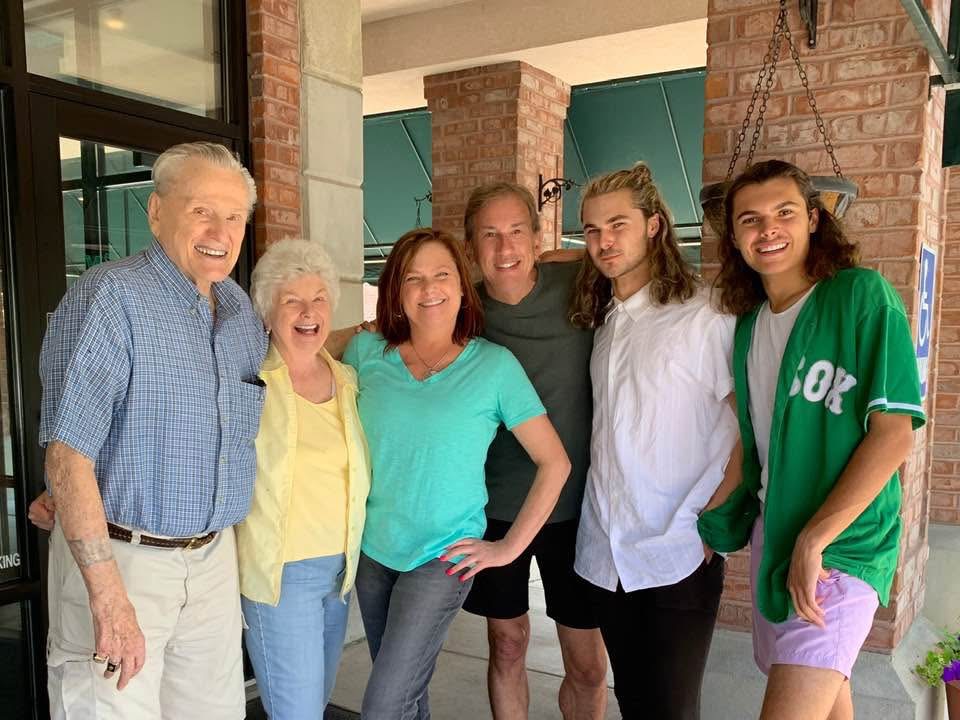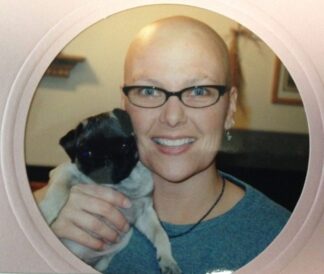Not alone: Provo woman continues long cancer fight, aided by Revere Health financial assistance program
- Tori Ballard smiles for a photo that highlights hope and breast cancer awareness.
- Tori Ballard, right, smiles for a photo with her family.
- Tori Ballard, left, smiles for a photo while receiving chemotherapy at Revere Health in Provo.
- Tori Ballard, left, smiles for a photo with her family at the Susan G. Komen Race for the Cure in 2004.
- Tori Ballard, third from left, smiles for a photo with her family.
- Tori Ballard, right, smiles for a photo while receiving chemotherapy at Revere Health in Provo.
- Tori Ballard, center, smiles for a photo with her sons.
- Tori Ballard, right, smiles for a photo with her sons at an Owlz game in Orem.
- Tori Ballard, right, smiles for a photo while receiving chemotherapy at Revere Health in Provo.
- Tori Ballard, center, smiles for a photo with her family.
- Tori Ballard, center, smiles for a photo with her sons.
- Tori Ballard smiles for a photo with her dog.
- Tori Ballard smiles for a photo while receiving chemotherapy at Revere Health in Provo.
Hearing Tori Ballard’s story might be enough to make anyone question whether they would be able to endure what she has endured.
But while the Provo resident has got through tremendous challenges, Ballard — with the aid of family, friends and her medical team at Revere Health — faces them with an inspiring upbeat attitude and a strong determination to make the most out of life.
In 2001, thanks to a painful-but-fortunate moment while holding her squirming son, Ballard found out she had an aggressive form of breast cancer. Despite being just 32-years-old and having no family history, she found herself going through surgery and treatment to fight the disease.
Initially things appeared to have gone well, but after 18 months she got the news that the cancer was back and had spread throughout her body.
“They basically said all they could do was keep me comfortable until I died,” Ballard said in a May interview.
Ballard’s doctor at Revere Health in Provo, Dr. J. Cordell Bott (a former Revere Health physician who has since passed away), told her that there was a new medication that might change the direction things were going.
“He said that it had just gotten FDA approved but that it would be a pain,” Ballard said. “He said I would probably have to do chemotherapy every week for the rest of my life.”
While that would be a daunting reality to face for anyone, Ballard instead focused on the one word that brought hope.
“I said, ‘Dr. Bott, the best thing I heard in that sentence was that you said the word life,'” Ballard said. “There’s a chance. I don’t care if I have to do chemotherapy. It’s better than just getting medication until I die.”
In 2003, Ballard began a weekly regimen of chemotherapy that has lasted for more than 20 years now. The battle against cancer has taken an enormous toll on her body, resulting in numerous broken bones, infections and numerous other complications.
In addition to those physical costs, she has also endured countless emotional challenges including going through a divorce and being forced to quit a job she loved because the strain was just too great.
By 2008, Ballard was a single mother trying to raise her children and fight cancer with a third of the income she had previously.
But, thanks to the dedicated efforts of Revere Health’s Medical Oncology group, Ballard and other cancer patients had help finding resources to deal with the financial costs of fighting the disease.
“Cancer care in general is just expensive,” Revere Health Oncology Administrator Ben Hodges said. “Anytime you’re talking about getting cancer, that’s one of the biggest anxieties that starts to hit after the initial diagnosis is given. Patients think, ‘How am I going to pay for this?'”
Hodges said that Revere Health realized that many patient would benefit from getting financial assistance so they could focus on their health.
“To help patient deal with what we refer to as the financial toxicity of cancer, we’ve created a financial coordinator team,” Hodges said. “Their full role is first to get authorization from insurance to get the drugs covered that we need to to take care of the cancer or other treatments that we’re administering, but then also to look for anything we can patient assistance programs, foundations, grants, provide a drug for manufacture, support programs, things like that, that we can go out and seek and see what we can do to reduce that financial toxicity piece associated with the patient’s treatment.”
Over the years, the effort and success of the financial coordinator team has expanded until in 2024 it collected $2.2 million to help patients and is on pace to break that mark in 2025, having already collected $1.8 million for that purpose in less than six months.
“We’ve got about nine people on our team right now that that’s their sole focus, getting the authorization and then the back end work in looking for these grants and foundations and patient assistance programs,” Hodges said. “It’s probably one of the most rewarding things that a staff member can do, going to a patient and saying there’s a substantial dollar amount that you’re going to have to pay for this but we’ve been able to secure a grant or some sort of assistance that covers that. The relief that they can see or hear on the phone sometimes when the patient expresses the gratitude that they have, it’s the biggest pat on the back you’ll ever receive. It’s motivating to fight even harder.”
Ballard was one of the many patients who has benefitted from those efforts. With the help of the oncology staff, she has been awarded numerous grants over the years totaling in the tens of thousands of dollars.
Both Hodges and Ballard know that the situation with foundations and grants are constantly evolving, so there could be a lot of uncertainty about funding in the coming months or years. But they said that doesn’t change the mentality.
“For us, we’ll keep fighting to see what we can come up with,” Hodges said. “Many of the funds come from private contributions, so if there is a concern with the economy or issues with unemployment, those wells can dry up. We’re trying to stay on top of things at all times.”
As a patient, Ballard said she has seen how Revere Health will always try to find answers.
“They have always been there and tried to work with me,” Ballard said. “It can be scary to think about having some sort of issue where I just can’t afford it any more. But I know they look at patients’ situations and try to help.”
Hodges said that seeing Ballard continue to fight through all of the challenges is just one of many examples that make him proud of the work his team does.
For her part, Ballard admitted that it’s not always easy to go through so many tough times.
“In the early days, I remember being so angry,” she said. “I kept thinking, ‘Why me?’ I’d see people laughing and smiling and I’d think, ‘Don’t you understand that your life could be shattered tomorrow?’ I’ve been depressed and I still struggle with it at times.”
As she has seen many others deal with the challenges of cancer and chemotherapy, though, she’s realized that adjusting your attitude makes an enormous difference.
“It’s easy to be super-negative about it, but you have to have a paradigm shift and realize that the needles and chemo, it’s what is keeping you alive,” Ballard said. “They aren’t fun. I wouldn’t opt to do this if I didn’t have to, but they are what are keeping me here with my loved ones.”
She said that despite every challenge, she feels extremely fortunate that the right medication came along and with the support she has received she has been able to beat the odds over and over again.
“I am so grateful and thankful,” Ballard said. “Yes, many weird things have happened, but I got to raise both my kids. I have a 28 year old and a 24 year old now. They got to have a mom growing up and I got to see them grow up.”




























